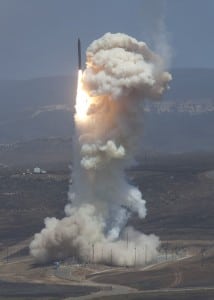
The Union of Concerned Scientists (UCS), a longtime critic of U.S. missile defense programs, recommends in a new report that the Missile Defense Agency’s (MDA) Ground-based Midcourse Defense (GMD) system receive greater oversight to help it overcome its history of reliability problems.Eager to deploy GMD, the President George W. Bush Administration quickly fielded the long-range missile defense system without subjecting it to many of the traditional acquisition rules for new military systems, such as setting specific performance requirements and outlining…

 By
By 










